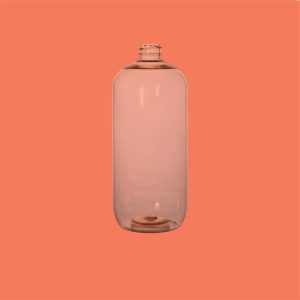This article is centered on Biodegradable Plastic Bottles, having been aware of the menace and impact of plastics in our environment and oceans alike, this could be a step in the right direction on solving plastics problem.
Since, we know there is no remedy in crying over spilt milk, a solution is best sort for the current plastic problems we face the world over.
In this effort to source for more effective and sustainable packaging solutions, there has been a tilt towards biodegradable plastic bottles.
This means that active steps are beginning to be adopted in producing containers, closures, and other packaging items to emulate bioplastics.
This biodegradable plastics are basically bottles, plates, bowls, cups, takeaway containers and cutlery made from sugarcane or PCR (Post Consumer Regrind).
These bottles are aimed at being eco-friendly, compostable and advancing organic recycling.
This means biodegradable plastic bottles are made with suitable materials that have been well examined through its entire life cycle to offer the greatest benefit.
Benefits of Biodegradable Plastic Bottles

A wide variety of industries such as: pharmaceuticals, beauty care, healthcare, food and drink, pet care, cleaning products etc are finding ways to adopt biodegradable plastics as the solution to plastics pollution.
Bioplastics are made from plant-based materials, sugarcane etc with believed potential to improve organic recycling and offer new properties to help curb the current plastic problems around us.
Companies like Coca-Cola have come to nickname biodegradable plastic bottles as plantbottle (a type of recyclable plastic, made 30 percent from sugar cane and other plants, and 70 percent made from traditional oil-based plastic.)
Bioplastics are envisioned as, the optimal solution for certified compostable items like:
• organic waste bags, grocery bags, dual-use shopping bags
• cling film
• food packaging, e.g. coffee capsules, cups, lids, trays
• coatings of household products and wrappings made of paper or cardboard
• or soil-biodegradable mulch films in agriculture.
As practical and promising as the benefits of biodegradable plastic sounds, a good number of persons argue otherwise.
Controversies with Biodegradable Plastics Bottles
A professor from Michigan University Ramani Narayan said “The concept that we could use it, throw it away, and it doesn’t matter where you throw it, and it’s going to safely disappear, that does not exist.”
Solution is insistent on recycling and reuse of plastics as the only strategies that can work.
Many experts support the solution to plastic waste to mainly lie on overhauling the world’s economy to recycle larger quantities of plastic than currently are being reused than in developing better biodegradable plastic bottles.
Among the remedies proposed are the elimination of plastic packaging wherever possible, substituted with paper or compostable material; products for effective recycling; increased mechanical recycling; collection and recycling efforts in moderate- and low-income countries, where the vast majority of ocean plastic originates; and an end to exports of waste plastic, which would force countries where the waste is generated to come up with solutions to the plastics problem.
Also, bioplastics commonly end up in landfills, and without enough oxygen will still last for centuries the very thing that it was intended to not do, and will further release methane, a potent greenhouse gas.
While bioplastics have organic recycling properties it works best when collected and composted in carefully controlled, high-temperature industrial composting facilities — and this is lacking, particularly in developing countries where the problem of plastic pollution is higher.
Conclusion
What matters to us, is not whether or not we should make biodegradable plastic bottles or we should debunk the idea and focus on recycling the single used plastic scattered in staggering amounts all around the world.
What matters is working together to adopt whatever strategy deem fit to fix this growing environmental problem together.
While preserving, our land, ocean and maintaining appropriate conditions for our plastic packaged products.
Worthy of note is that – in many ways, the non-degradable plastic packaging that seems to be a concern today, has sterling qualities.
They are strong, versatile, light, clear, and inexpensive and offer optimum protection to products and can stand up to the acid and pressurization of soft drinks without breaking down or becoming permeable over months or years.
For bioplastics to be fully acceptable they need to replicate these attributes, and some actually do.